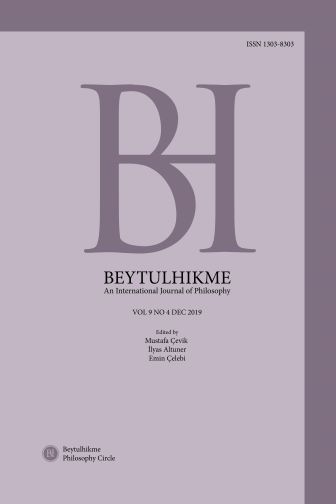Author :
Abstract
Bu makalenin hedefi Henri Poincaré’nin sezgiciliğine ışık tutmaktır. Bugün matematik felsefesinde sezgicilik görüşü, çoğunlukla L.E.J. Brouwer ile ve üçüncü hâlin imkansızlığı ilkesine dayanan kanıtları matematikten çıkarma fikri ile ilişkilendirilmektedir. Sezgicilerin, matematiksel yöntemimizde bir kusur bulunduğu ve köklü bir değişim gerektiği iddiasında olduklarına dair yaygın bir kanı vardır. Fakat şaşırtıcıdır ki matematiği insanoğlunun sezgilerine bağlayan ilk düşünür Immanuel Kant’ın böyle bir iddiası olmamıştır ve kendisi sezgi terimini bugün anlaşıldığından farklı bir anlamda kullanmıştır. Bu, Kant’ın felsefesinde kayda değer değişiklikler yapan ve bir ön-sezgici veya yarı-sezgici olarak anılan Poincaré için de geçerlidir. Warren Goldfarb gibi bazı filozoflar haklı olarak Poincaré’nin sezgiye başvurmasının sebebinin matematiksel düşünmenin psikolojik boyutunu anlatmak olduğunu iddia etmişlerdir. Bu makalede, bahsi geçen psikolojik boyutun Poincaré’nin sezgiciliğinin tümü olmadığı ve felsefesinde Kantçı gelenekten aldığı a priori, saf bir sezgi fikri olduğu savunulmaktadır.
Keywords
Abstract
This paper aims to shed light on Henri Poincaré’s intuitionism. Today, the intuitionistic philosophy of mathematics is usually associated with L.E.J. Brouwer and the idea of expelling the proofs which rest on the law of excluded middle from mathematics. There is a widespread supposition that intuitionists argue that there is a certain error in our standard way of doing mathematics and that a radical change in mathematics is needed. It is interesting to note, however, that Immanuel Kant, who was the first philosopher to relate mathematics to the intuitions of the human being, did not maintain such an argument and he used the term intuition in a different sense than what is generally understood today. This is also true of Poincaré, who made a significant revision to Kant’s philosophy of mathematics and who is usually regarded as a pre-intuitionist or a semi-intuitionist. Some philosophers, such as Warren Goldfarb, rightly argued that Poincaré’s concern in invoking intuition was to explain the psychological aspect of mathematical thinking. It is argued in this paper that this psychological aspect was not the whole point of Poincaré’s intuitionism as there is a notion of a pure, a priori intuition in his philosophy which he borrowed from the Kantian tradition.
Keywords
- Ayer, A. J. (1964). The a Priori. Philosophy of Mathematics: Selected readings. (Eds. P. Benacerraf & H. Putnam). New Jersey: Prentice-Hall, 289-301.
- Folina, J. (1986). Poincaré and the Philosophy of Mathematics. Fife: University of Saint Andrews.
- Goldfarb, W. (1988). Poincaré against the Logicists. (Eds. W. Aspray & P. Kitc- her). History and Philosophy of Modern Mathematics, vol. XI. Minneapolis: University of Minnesota Press, 61-81.
- Heinzmann, G. (1998). Poincaré on Understanding Mathematics. Philosophia Scientiae, 3 (2), 43-60.
- Hilbert, D. (1950). The Foundations of Geometry. (Trans. E.J. Townsend). Illinois: La Salle.
- Kant, I. (2000). Critique of the Power of Judgment. (Trans. P. Guyer & E. Matt- hews). New York: Cambridge University Press.
- Poincaré, H. (2008). Science and Method. (Trans. F. Maitland). London: Thomas Nelson and Sons.
- Poincaré, H. (2011). Science and Hypothesis. (Trans. W. J. Greenstreet). New York: Dover Publications.





